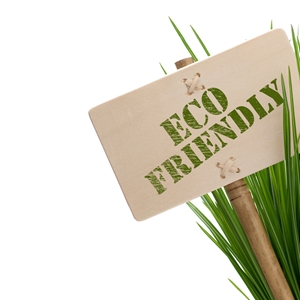Using Natural Labels May Do More Damage Than Good
This entry was posted on April 06, 2016 .
 Green Marketing Tactics Misleading Consumers
Green Marketing Tactics Misleading Consumers
The consumer market is fraught with controversy right now, with much attention being paid to how well a company is (or, in most cases, isn't) using its product labeling to accurately and honestly inform a shopper of the ingredients and sourcing practices used to make the item.
Much of the scrutiny has been pointed at food and beverage manufacturers. For example, with Vermont soon to be the first state in America to enforce the mandatory labeling of GMOs, the pressure is intensifying for Congress to pass a national standard. However, one of the biggest areas of concern is the seemingly misleading health claims many companies are able to make on packaged products.
The United States Food and Drug Administration has vague and sometimes confusing guidelines for what is considered to be "natural" or "organic." The problem with this is that, without strict policies, clear definitions and forceful regulation of the use of such terms, they can be, and often are, applied in a way that is misinterpreting to consumers. Eco-friendly and "green" labels have become a popular marketing tool for companies and not just throughout the food industry.
Natural House Cleaners May Cost More (For No Reason)
When shopping for household goods, such as cleaners and detergents, a lot of people also look for the healthier and safer alternatives. Similar to how they don't want to eat foods that are harmful to their well-being, they also don't want to use products that are packed with toxic chemicals and harsh substances. Some are so attracted to "green" items, in fact, that they are willing to pay more for them, The Wall Street Journal reported. Therefore, it would be quite frustrating for these shoppers to learn that the ingredients used in natural cleaning products aren't much different, if at all, from their traditional (often less expensive) counterparts.
Again, the news source noted, the trouble is that there are no regulatory policies distinguishing what makes a household item "natural" or not. And, perhaps even more troubling, is that, "it isn't clear who is checking the labels of household products or the contents of bottles."
The Federal Trade Commission, The Wall Street Journal went on to explain, oversees the truth-in-advertising regulations and have guidelines to help businesses make honest and accurate claims on labels. However, there has been no definitive direction given to marketers on how to advertise natural products; more of the focus is often placed on regulating "organic" labels.
Long-term Labeling Lawsuit Effects
This past year, Jessica Alba's Honest Company, known for its "all-natural" products, including skin care items, diapers and home cleaning goods, faced a number of legal battles regarding the alleged misleading use of the health claims made on its labels. One of the most recent scandals involved The Wall Street Journal reporting that its searchers discovered Honest Company laundry detergent contained one of the exact ingredients its ensured shoppers it did not. Honest and others have already started adjusting their use of eco-friendly labeling, hoping that steering away from making grand claims of being the best healthy alternative will spare them some scrutiny.
As consumers demand greener, healthier and environmentally responsible sourcing practices from product makers, it is likely that an increasing number of companies will begin following suit. With more regulators cracking down on unethical practices and a growing number of businesses facing lawsuits for deceptive marketing, it seems there will soon be a widespread shift in how green labels are perceived. Making natural claims on labels, a tactic originally adopted by many organizations to boost sales, has now become a risk to manufacturers today, threatening their reputations and credibility.
Request your FREE instant quote today.


 Custom Labels
Custom Labels  Custom Beverage Labels
Custom Beverage Labels  Custom Lip Balm Labels
Custom Lip Balm Labels  Custom Warning & Safety Labels
Custom Warning & Safety Labels  Perfume Bottle Labels
Perfume Bottle Labels  Bumper Stickers
Bumper Stickers  Custom Prop 65 Warning Labels
Custom Prop 65 Warning Labels  Custom Stickers
Custom Stickers